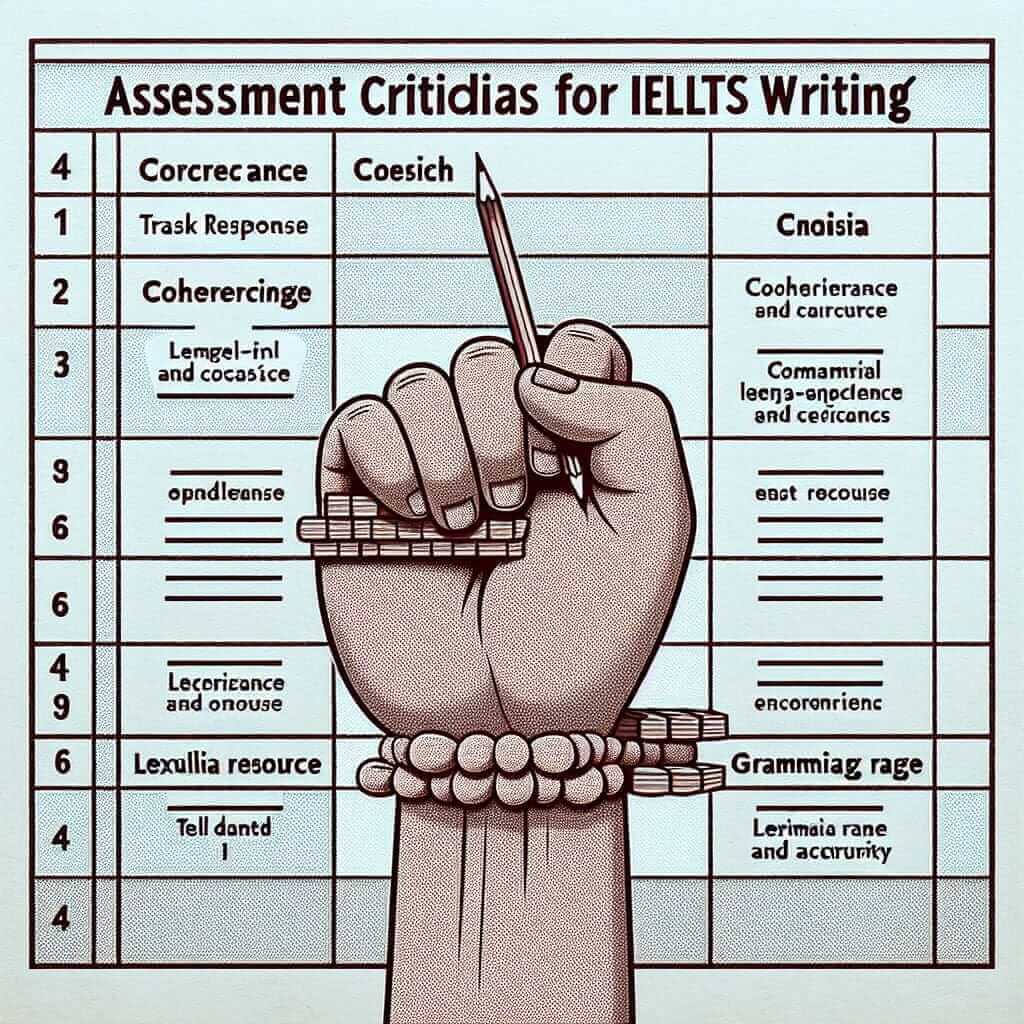Achieving a Band 9 in IELTS Writing is a dream for many test-takers. It signifies complete mastery of the English language and the ability to craft compelling and well-structured essays. While it is a challenging feat, it is certainly attainable with dedicated effort and a strategic approach. This article will delve into the intricacies of achieving a Band 9 in IELTS Writing, providing you with invaluable insights, practical tips, and real-life examples to guide you on your path to success.
Understanding the Assessment Criteria
The first step to excelling in IELTS Writing is to understand what the examiners are looking for. There are four key assessment criteria:
1. Task Response (or Task Achievement)
This criterion assesses how well you have addressed the task requirements. A Band 9 response will:
- Fully address all parts of the task: This means directly answering the question and providing relevant arguments, ideas, and examples.
- Present a clear and well-developed position: Your stance on the topic should be evident throughout the essay.
- Support your ideas with relevant and convincing evidence: Avoid making unsupported claims. Use strong examples, statistics, or personal anecdotes to bolster your arguments.
Example:
Let’s say the essay question is: “Some people believe that the best way to reduce crime is to impose stricter punishments. To what extent do you agree or disagree?”
A Band 9 response will clearly state whether the writer agrees, disagrees, or partially agrees with the statement. They will then present well-reasoned arguments to support their position, backing them up with relevant examples.
2. Coherence and Cohesion
This criterion focuses on the organization and flow of your essay. A Band 9 response will:
- Be logically organized: Ideas should be presented in a clear and logical order, with smooth transitions between paragraphs.
- Use a range of cohesive devices effectively: Cohesive devices are words or phrases that connect ideas and sentences, such as “furthermore,” “however,” “in contrast,” etc.
- Use paragraphing appropriately: Each paragraph should focus on a single main idea.
Example:
Instead of simply listing arguments, a Band 9 essay might use phrases like “Firstly, stricter punishments act as a deterrent…” or “Moreover, such measures can help in…” to create a more cohesive and logical flow of ideas.
3. Lexical Resource
This criterion assesses your vocabulary range and accuracy. A Band 9 response will:
- Use a wide range of vocabulary accurately and appropriately: Avoid repetition and demonstrate your knowledge of synonyms and idiomatic expressions.
- Use less common lexical items naturally and accurately: Don’t just throw in big words for the sake of it. They should fit the context and contribute to the overall clarity and sophistication of your writing.
- Avoid errors in spelling and word formation: Even minor spelling mistakes can impact your score.
Example:
Instead of repeatedly using the word “important,” a Band 9 writer might opt for synonyms like “crucial,” “vital,” “essential,” or “pivotal,” depending on the specific context.
4. Grammatical Range and Accuracy
This criterion assesses your grammar skills. A Band 9 response will:
- Use a wide range of grammatical structures accurately and flexibly: This includes complex sentence structures, passive voice, and a variety of tenses.
- Produce error-free sentences: While the occasional minor error might be forgiven, consistent grammatical mistakes will lower your score.
Example:
A Band 9 essay might use a complex sentence structure like “Although stricter punishments may deter some individuals from committing crimes, the underlying social and economic factors that contribute to criminal behavior must also be addressed.” This demonstrates a mastery of complex grammar and sentence construction.

Common Mistakes to Avoid
Even proficient English users can make mistakes that hinder their chances of achieving a Band 9. Here are some common pitfalls to watch out for:
- Ignoring task requirements: Always carefully read and analyze the essay question before you start writing. Make sure you understand exactly what is being asked.
- Lack of clear structure: A well-structured essay is crucial for clarity and coherence. Use paragraphs effectively and ensure a logical flow of ideas.
- Limited vocabulary: Expand your vocabulary by reading extensively and noting down new words and phrases.
- Grammatical errors: Be meticulous about grammar. Review your work carefully for any errors in tense, subject-verb agreement, etc.
- Overusing memorized phrases: While it’s helpful to have a few memorized phrases, avoid overusing them. Your writing should sound natural and original.
Tips for Achieving a Band 9 in IELTS Writing
Now that you understand the assessment criteria and common mistakes to avoid, let’s look at some practical tips for achieving a Band 9:
- Practice Regularly: Consistent practice is key. Write essays on a variety of topics and time yourself to simulate exam conditions.
- Get Feedback from an Expert: Have your writing assessed by a qualified IELTS tutor or teacher who can provide you with detailed feedback and areas for improvement.
- Read Extensively: Reading widely will expose you to different writing styles and expand your vocabulary. Focus on academic texts, newspapers, and magazines.
- Learn from Model Answers: Analyze Band 9 essays to understand the elements that contribute to a high score. Pay attention to the structure, vocabulary, grammar, and overall style.
- Proofread Meticulously: Never underestimate the importance of proofreading. Check your work carefully for any errors in grammar, spelling, punctuation, and coherence.
Conclusion
Achieving a Band 9 in IELTS Writing is an ambitious goal that requires dedication, strategic planning, and consistent effort. By understanding the assessment criteria, avoiding common mistakes, and implementing the tips outlined in this article, you can significantly enhance your writing skills and increase your chances of success. Remember to practice regularly, seek expert feedback, and refine your writing style to achieve your desired score.